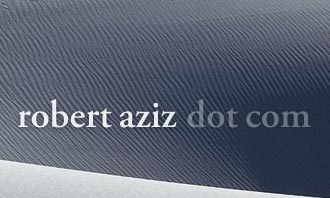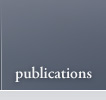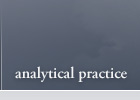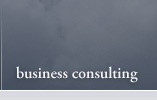Masterful Instruction – Dr. Aziz on The Times of India, Speaking
Tree
by robert aziz
The experiential transmission of knowledge has long been held by the consciousness and
enlightenment traditions to be the highest level of instruction and as such the most difficult
to master. Indeed as soon as we step beyond the provision of knowledge for the purposes of what
I would term “retentional education” and take as our task the advancement of others
psychologically and spiritually, in a manner, moreover, that is attuned to their unique
developmental needs, we find ourselves in altogether different territory. The transmission of
knowledge for the purposes of retentional education does not require of its students a
willingness to descend experientially into a process of personal challenge and transformation.
In fact, it often eschews such initiatives. But when the intended outcome of the transmission of
knowledge is enlightenment, a sacred circle is drawn in which the requisite descent is hastened
by way of the direct, experiential transmission of knowledge within the actual instructional
process.
Pulling consciousness out of unconsciousness is no easy task. The teacher and student will face
unique and unpredictable tests. Outcomes will entirely depend on the level of consciousness the
teacher brings to bear on the unfolding process, moment by moment. Indeed only by directly
engaging and addressing in the actual unfolding process that which is obstructing the student,
only by bringing consciousness to bear on the presenting moment and its developmental
opportunity that would otherwise remain concealed by the unproductive looping of the neurotic
mind and what I technically term ego control, will the teacher be positioned to deliver the
required transformational shock to the student and realise the experiential transmission of
knowledge.
The critical steps of the direct, experiential transmission of knowledge within the actual
instructional process are thus twofold: 1) The teacher knows exactly how the student’s
consciousness is obstructed 2) The teacher engages the student’s developmental obstruction
directly and experientially with transformational effect after having circumvented the
resistances presented by ego control and the unproductive looping of the neurotic mind.
Invariably it is at moments of developmental opportunity that under the auspices of ego control,
powerful and cunning, sub-conscious resistances to personal challenge and growth strike with a
vengeance. To the extent, moreover, these regressive and largely unconscious-driven energies are
not neutralised and eventually get the upper hand, to the extent the teacher and the process
ends up being assimilated by the problem, rather than assimilating it, not only would the
efficacy of the transformational process be compromised, but the teacher would also be at risk.
Unconscious energies untouched by the light of consciousness invariably assume their most toxic
form. It is, therefore, incumbent on the teacher for both instructional and personal reasons to
recognise exactly what these energies are up to and keep the intended transformational process
on track. With reference to the teacher’s need to hold firm under these exact circumstances, we
thus read in Richard Wilhelm’s translation of the ancient Chinese text, the I Ching: “A
teacher’s answer to the question of a pupil ought to be clear and definite like that expected
from an oracle; thereupon it ought to be accepted as a key for resolution of doubts and a basis
for decision. If mistrustful or unintelligent questioning is kept up...(the teacher) does well
to ignore it in silence, just as the oracle gives one answer only and refuses to be tempted by
questions implying doubt.”
Ignoring in silence “questions implying doubt” would be to ‘not contend with’ or ‘not chase’ the
student’s regressive resistances or decoys. Ignoring in silence “questions implying doubt” would
be to deliver a shock that would at once disrupt the neurotic chatter and resistances of ego
control while redirecting the student’s focus to the developmental challenge of the
transformational process at hand.
The Gospel of Thomas, which was only discovered in 1945, is regarded by some as perhaps the
purist expression of Jesus’ level of attainment as a spiritual master. Indeed the directives and
exchanges in the Gospel are far more in keeping with the consciousness and enlightenment
traditions than the biblical canon, which is to say, more esoteric (only accessible to the
initiated) than exoteric (accessible to everyone).
In the Marvin Meyer translation of The Gospel of Thomas, the text reads: “Jesus said, ‘If you
bring forth what is within you, what you have will save you. If you do not have that within you,
what you do not have within you (will) kill you.’
The shadow is a term coined by Jung to refer to those unknown and often inferior aspects of the
personality, which most individuals are reluctant to acknowledge, even though they ultimately
would be greatly benefitted by so doing. Jesus thus states in the Gospel of Thomas, arguably
with reference to the equivalent of the important consciousness work of shadow integration, “If
you bring forth what is within you, what you have will save you.” Now, at this point during an
actual exchange of this nature, if someone were fully in the grip of ego control that individual
would almost certainly answer: “I hear you, but there is nothing whatsoever in me that is in
anyway inferior.” To which Jesus, as we have seen, would respond expediently. And he would do so
by ‘not chasing’ the student’s regressive resistances or decoys, by “not contending with” the
obviously untenable position taken by the student, but rather, by making it impossible for the
student not to own the problem, by keeping the tension and ethical burden of the student’s
developmental obstacle exactly where it needs to be kept — with the student in the immediacy of
the unfolding process. Thus spoke Jesus in the Gospel of Thomas: “If you do not have that within
you, what you do not have within you (will) kill you.”






